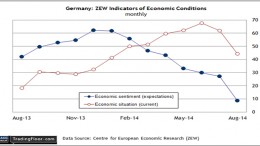Morning briefing: US Fed language will focus attention
The Corner | March 16, 2015 | The week ahead is likely to be dominated by the FOMC meeting in the US. Market watchers are expecting some movement on the semantics of pronouncements by the US Fed. In essence, any change in language will signal that a rates hike from the central bank is drawing closer.




